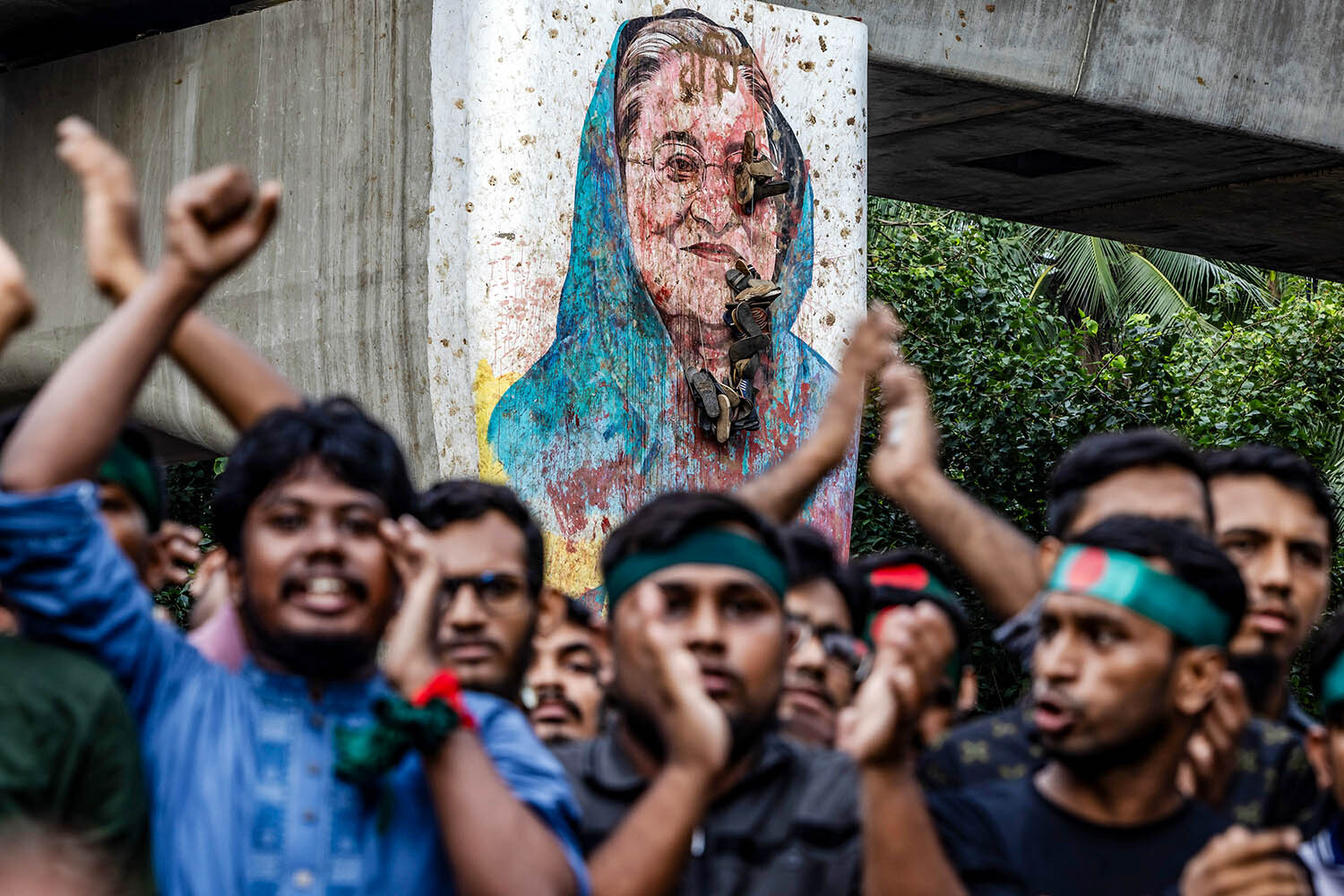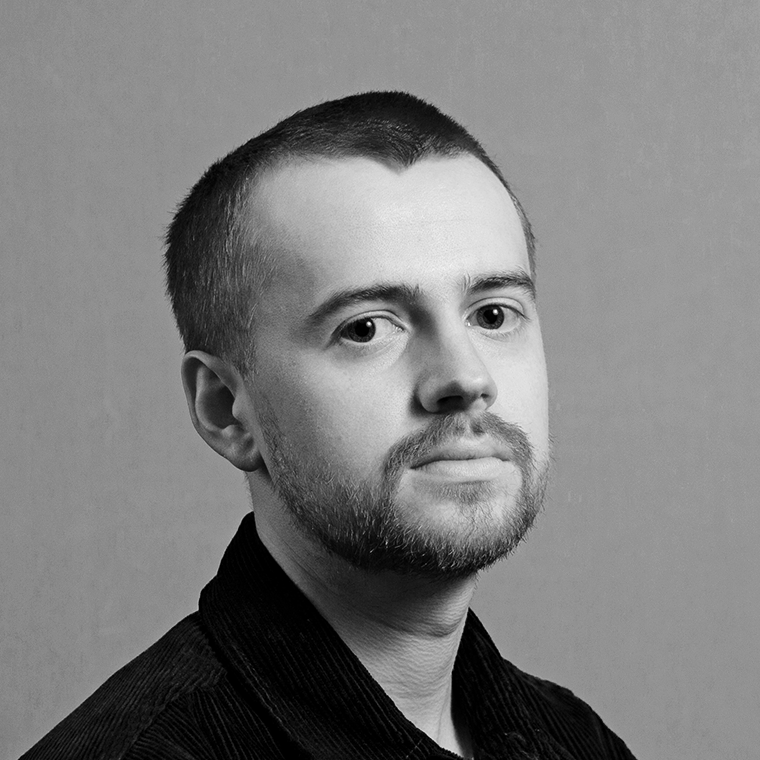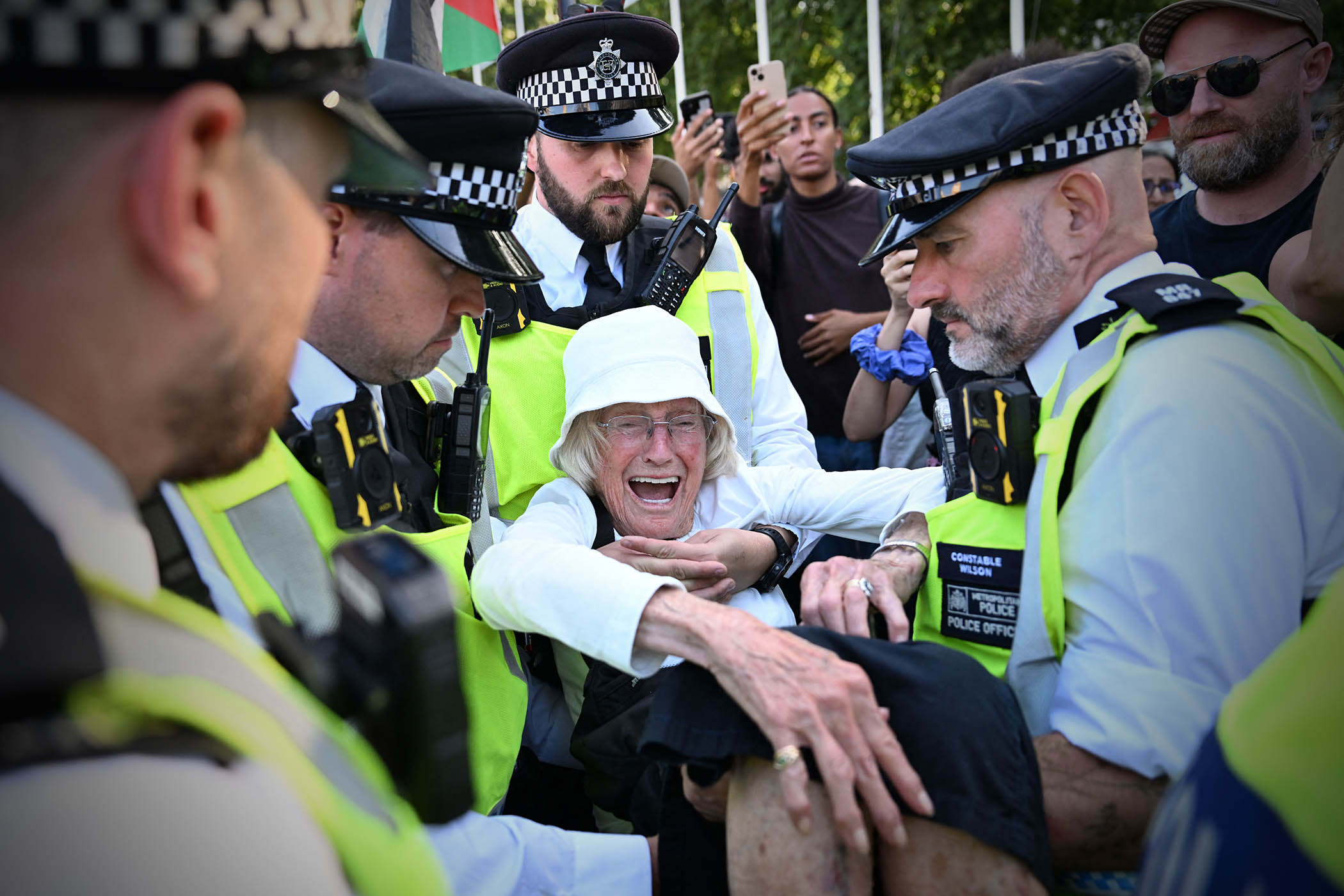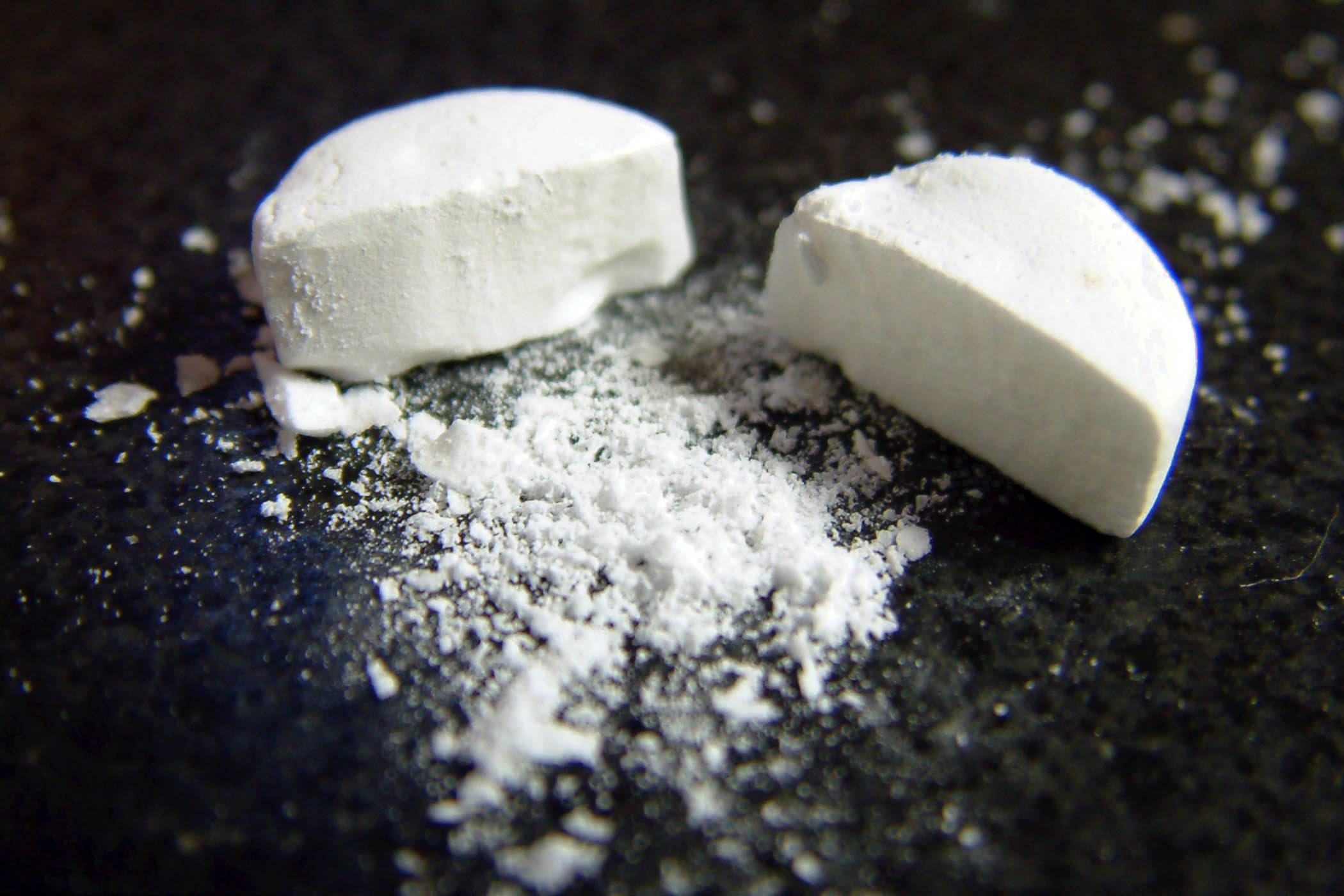Bangladesh’s International Crimes Tribunal has begun trying the country’s ousted prime minister for crimes against humanity related to the violent suppression of protests last year.
So what? Sheikh Hasina won’t be in the courtroom. She has been put on trial in absentia after leaving the country for India in the wake of the unrest. But her case is being watched closely in Bangladesh, where many want her to be held accountable for
•
the deaths of more than a thousand protesters;
•
disappearances and extrajudicial killings throughout her rule; and
•
her continued defiance against joining court proceedings in person.
The person. Hasina, the daughter of Bangladesh’s first president, governed for more than 20 years over two periods. She was born in India where she was granted asylum in 1975 after a military coup took the lives of her father, mother and three brothers.
Spark. Once an outspoken advocate of democracy, Hasina came to rule Bangladesh with an iron fist and was accused of suppressing political opposition. But her time in office came to an unlikely end when mass student protests erupted last July over civil service job quotas.
Evolution. The uprising morphed into an anti-government movement and is said to have seen the most widespread participation of women in street protests in Bangladeshi history.
Deadly. The government’s response, which included deploying police who fired live ammunition at protesters, is estimated to have led to as many as 1,400 deaths in 46 days.
Downfall. On 5 August 2024, Hasina resigned and fled by helicopter after demonstrators stormed her palace. Bangladesh has requested her extradition several times to no avail.
Seeking justice. Prosecutors charged Hasina last month, alongside her former home minister and the former police chief Chowdhury Abdullah Al-Mamun. Al-Mamun has pleaded guilty and become a state witness in the case against Hasina.
The rap sheet. Hasina has been charged with crimes against humanity, including incitement, facilitation and conspiracy in relation to mass killings during the protests.
•
Prosecutors accuse the former prime minister of giving direct orders for the killings and are seeking the death penalty, describing Hasina as the “nucleus of all crimes”.
•
Her party denies that its leaders, including Hasina, were responsible for force used against protesters.
The court. The International Crimes Tribunal was established in 2010 by Hasina’s own party to prosecute war crimes committed during the 1971 independence war. Under the current interim government, led by Nobel laureate Muhammad Yunus, the tribunal has been repurposed to address more recent crimes from when Hasina was in power.
Newsletters
Choose the newsletters you want to receive
View more
For information about how The Observer protects your data, read our Privacy Policy
Controversy. Some members of the Awami League, which is headed by Hasina, have called the trial “political revenge.” The current chief prosecutor was lead counsel for the opposition party Jamaat-e-Islami when its leaders were tried in the same tribunal for historical war crimes.
Proceedings. The first witness presented to the court had his face torn apart by gunshot on 5 August 2024, the day Hasina left Bangladesh, and now wears a mask. Another described how she lost her vision in one eye after the police shot her at close range.
Unrepentant. Shortly after Hasina fled, her son said she was “disheartened and disappointed” at Bangladeshi people’s “lack of gratitude”. In an open letter released this week, Hasina described her removal from power as “a dark moment in our history, an affront to the will of the people, and a betrayal of the trust between citizens and the state”.
Other news. In early July the tribunal sentenced Hasina to six months in prison for contempt of court, following the leak of an audio recording in which she is alleged to have said: “There are 227 cases against me, so I now have a licence to kill 227 people.”
Other other news. The former prime minister is also under investigation by Bangladeshi authorities for alleged corruption and money laundering. Officials estimate that roughly £174 billion was secretly extracted from the country during her rule. Millions of pounds was allegedly funnelled into properties across the UK.
British connection. Bangladesh’s anti-graft commission filed cases against Hasina and her family in January. Those targeted include Hasina’s niece, the Labour MP Tulip Siddiq, who was accused of illegally receiving land from her in Bangladesh.
Fallout. Siddiq resigned from her role as the government’s treasury minister in January but denies any wrongdoing. Her lawyers call the allegations “false” and “politically motivated”.
What’s more… Earlier this year Bangladeshi authorities issued an arrest warrant for Siddiq, whose corruption trial is scheduled to start on Monday in Dhaka. She is not expected to appear.



